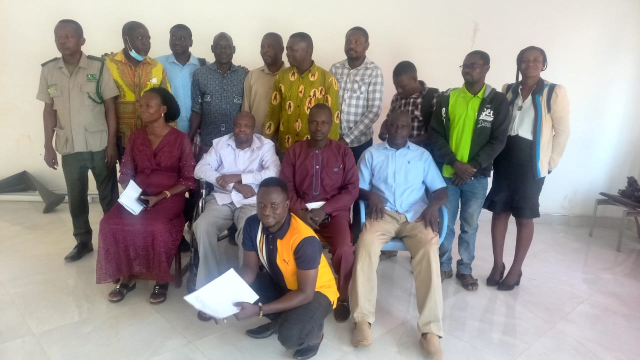By: Emmanuel Akayeti
A two-year Farmer Managed Natural Regeneration (FMNR) project for women’s empowerment and livelihoods (FMNR4WELIP) has been piloted in the Nabdam District of the Upper East Region.
The two-year pilot project, which is being funded by the Awaken Trees Foundation (ATF) of Australia, is to be implemented in Dasang and Kparaboug communities in the Kontintabig Electorial area of the Sakote Area Council. The project aims at safeguarding and enhancing women’s land-based livelihoods through the sustainable use of natural resources using the FMNR technique.
The project is in line with FONAR and Awaken Trees Foundation’s efforts to restore degraded lands and promote sustainable use of natural resources to improve the well-being of people using the low-cost and community-led FMNR approach. This is in fulfilment of the policies and programs of the Ministries of Lands and Natural Resources and Food and Agriculture, goals to restore degraded lands to improve soil fertility for food security and reduce rural poverty.
The Nabdam District Assembly, the Chief and people of the targeted communities are concerned about the impact of land degradation in the area. It seeks to, in the long term, improve soil fertility and sustain fuelwood availability in the communities and to support measures to reverse land degradation in the target communities.
The project will, in a small way, contribute to improving food security, nutrition, and sustainable Agriculture (SDGs target 2.1, 2.2, 2.3, 2.4), promote gender equality and the empowerment of women and girls in natural resource management (SDGs targets 5.5 and 5A), and to reverse land degradation, restore biodiversity, and combat drought desertification (SDGs target 15.2, .15.3 and 15.5).
The project targets 300 direct beneficiaries made up of 75 men and 125 women, 100 youth boys and girls about 1000 indirect beneficiaries in the two communities. Women in the project communities play a crucial role in ensuring their families are well fed and cared for, and so will be prioritised in the project activities to restore their environment for food security and improved livelihoods. The indirect beneficiaries consist of people from the neighbouring communities who would not directly participate in planned project interventions but are likely to contact the direct beneficiary farmers for knowledge and good practice exchange through interpersonal communication.
The FMNR restoration module requires broader access and control rights to land and tree resource, which are often vested in community-customary land use practices. Given the continuous nature of land ownership and use, the project will work with traditional authorities and entire communities to ensure that land use rights are assigned equitably. It will work with community-based natural resource governance key stakeholders such as chiefs and elders; Assembly members, (local government representatives), women’s group and their leaders; fire volunteers, FMNR lead farmers, herders bee-keepers, faith-based groups, and traditional medicine practitioners, among others.
The District Assembly as a key partner has a crucial role to play in ensuring that, national and local natural resource management policies and laws are supportive of FMNR implementation. The project will implement the FMNR module alongside a few viable complementary livelihood activities, targeting vulnerable female farmers, widows, female-headed households, and other disadvantaged groups. It will establish and train FMNR lead farmers to head their communities for collective action for land restoration.
The Forum for Natural Regeneration will implement the project in partnership with the decentralized department of the Nabdam District Assembly and local communities. FONAR is a Non-Governmental Organization that works to promote ecological restoration, especially in degraded agricultural landscapes, for improved livelihoods and restoration.


















